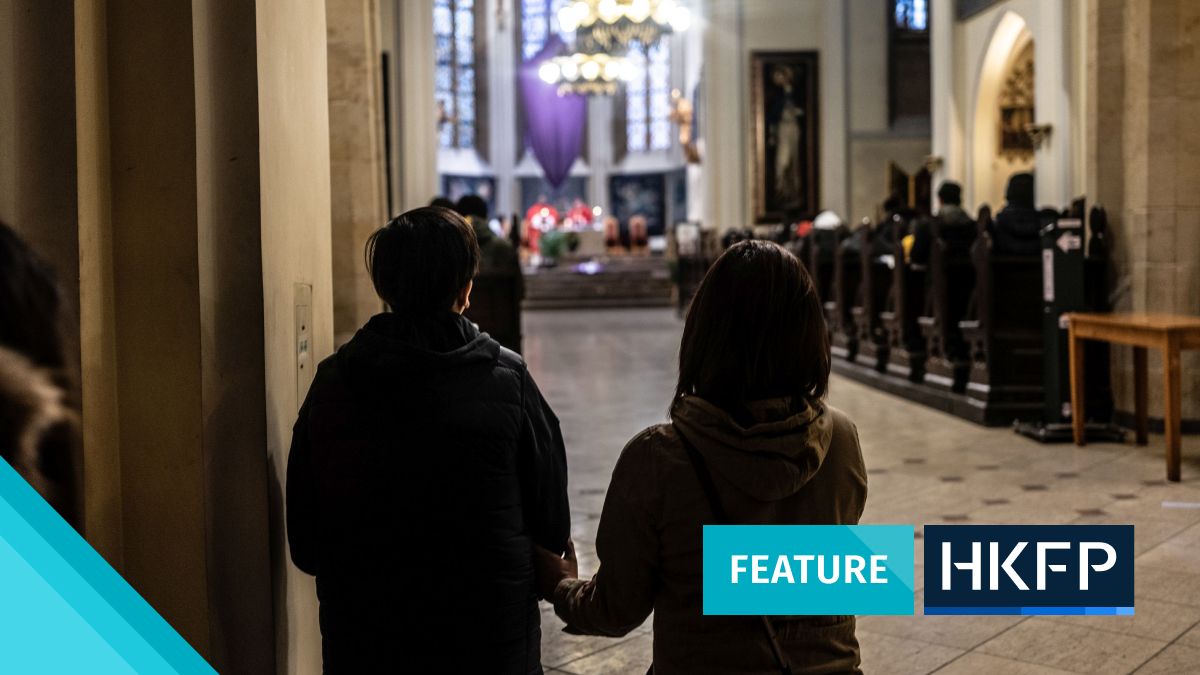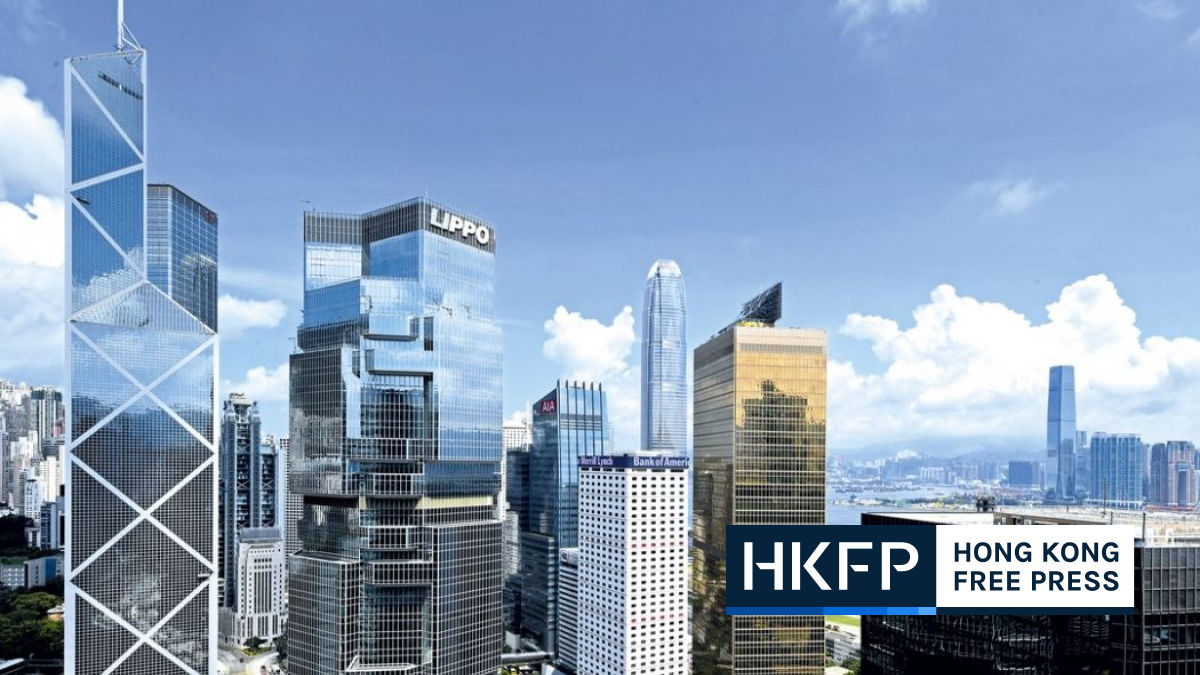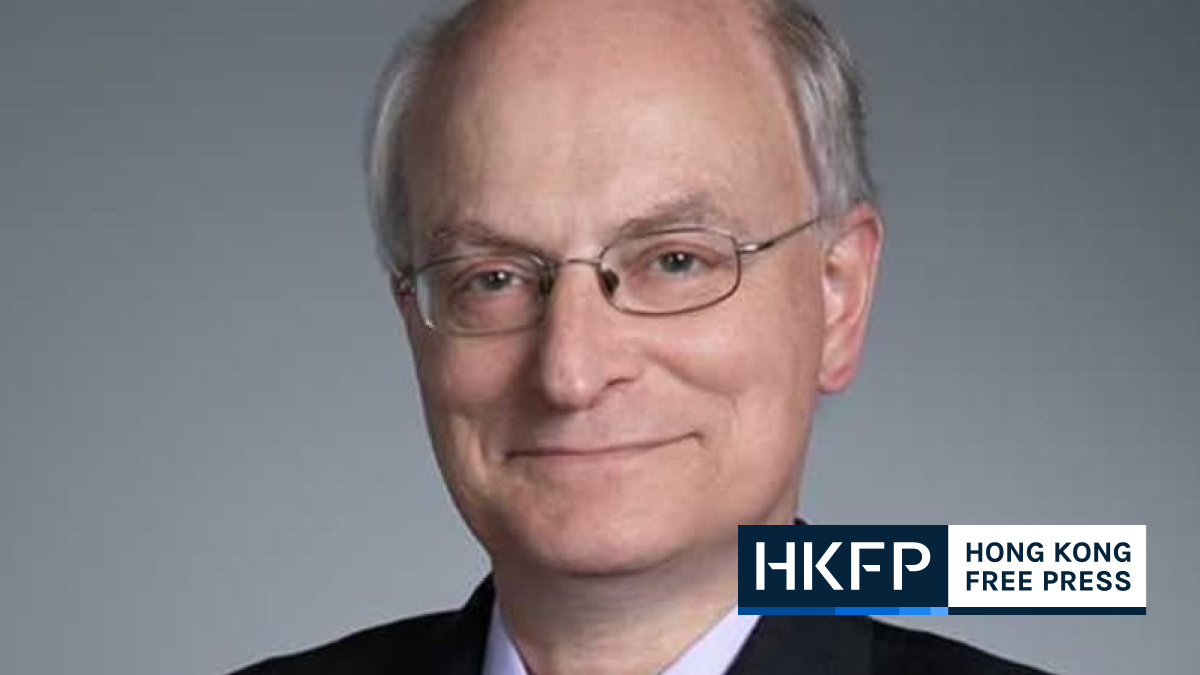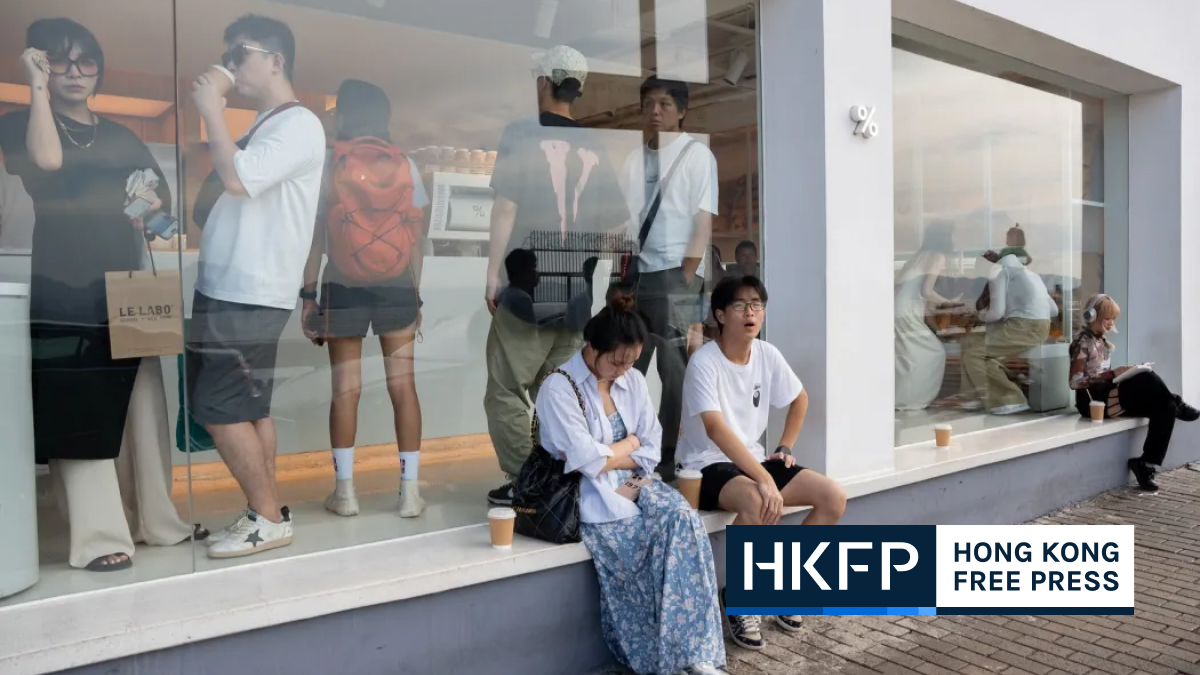Two schools have been singled out by Hong Kong’s Education Bureau after their students were said to have sung the national anthem too softly.
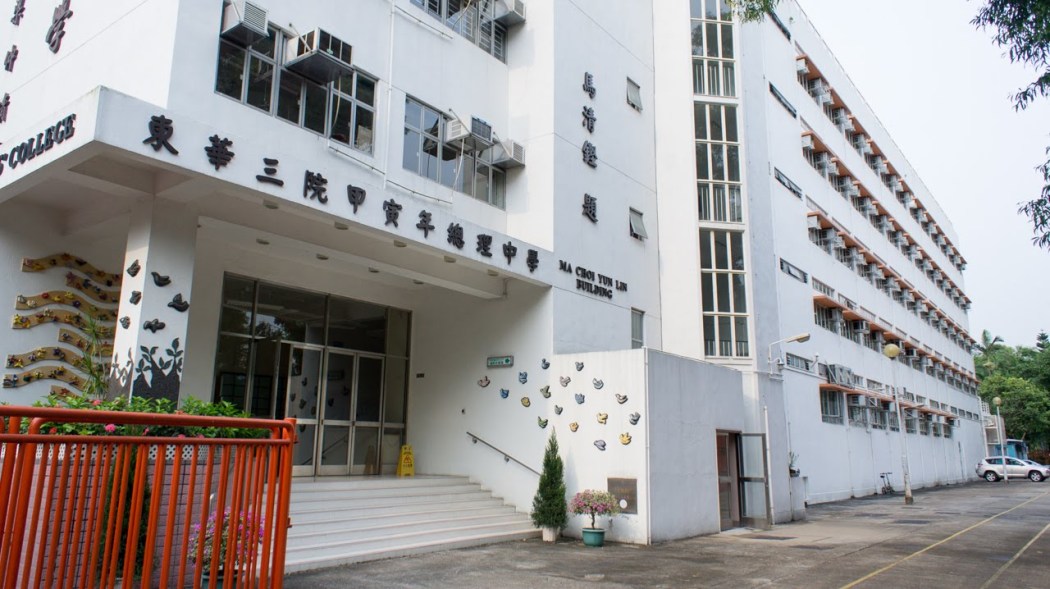
The Hong Kong and Macau Lutheran Church Primary School in Hang Hau began implementing school-wide patriotic education this academic year, an inspection report for the school read.
But while the flag-raising ceremony was “solemn” and the students leading it were “skilled,” the singing of the anthem was weak.
At the Yan Chai Hospital Lim Por Yen Secondary School in Tsuen Wan, students were said to have “actively [taken] part in patriotic activities” such as paper cutting and sugar painting during a Chinese culture week.
According to the report, however, students sang the national anthem softly during flag-raising ceremonies. Teachers were recommended to: “give reminders and help students develop a habit of singing the national anthem loudly.”
The two schools were among 10 that the Education Bureau uploaded report summaries for on Tuesday as part of the School Development and Accountability (SDA) framework. The reports are written based on school inspections.
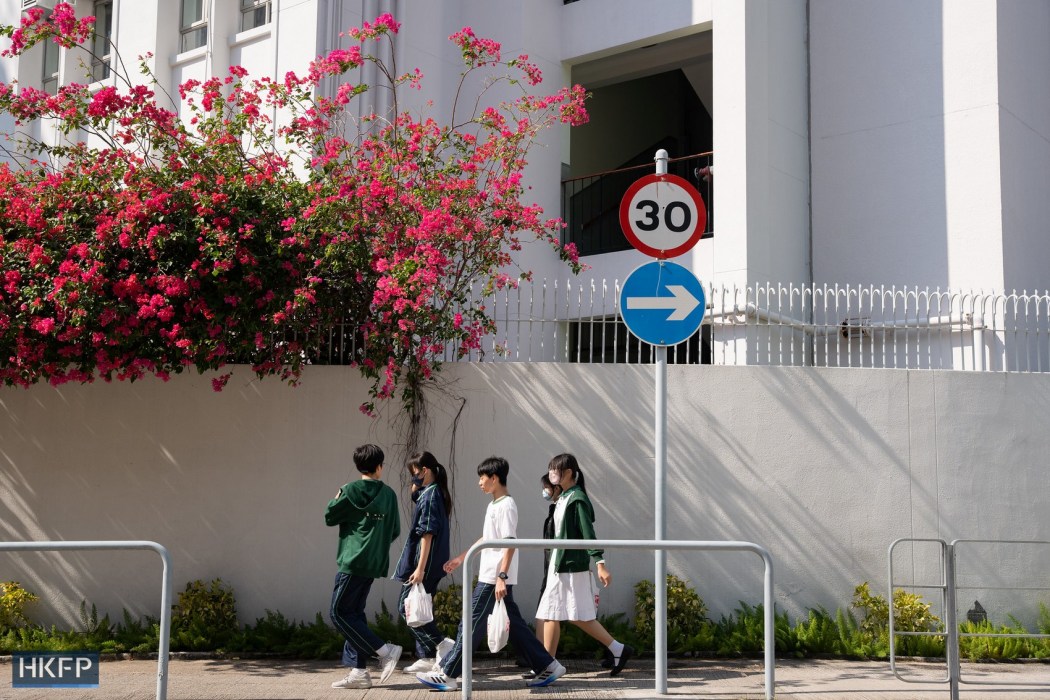
The reports have been prepared since the 2003-04 school year, but the Education Bureau only began uploading parts of the reports this academic year.
In the report for another school, TWGHs Kap Yan Directors’ College in Sheung Shui, students “followed the required etiquette and gave respectful attention in general” during a flag raising ceremony that was observed.
The evaluators, however, advised the school to provide “more guidance” to students to “cultivate their habit and confidence in singing the national anthem.”
At least two schools were commended for promoting patriotic education both inside and outside the classroom. The Church of Christ in China Kei Tsz Primary School in Wong Tai Sin “intentionally set up exhibitions in the school with elements including Chinese culture, the country’s circumstances, the country’s geography and national security education.”
In Shek Tong Tsui’s S.K.H. St. Peter’s Primary School, students were taught to develop a sense of national identity, the report wrote. It added that the school organised an exhibition on China’s space programme on parent-teacher day, “enhancing parents’ knowledge of the country’s development and nurturing students’ sense of belonging to the country.”
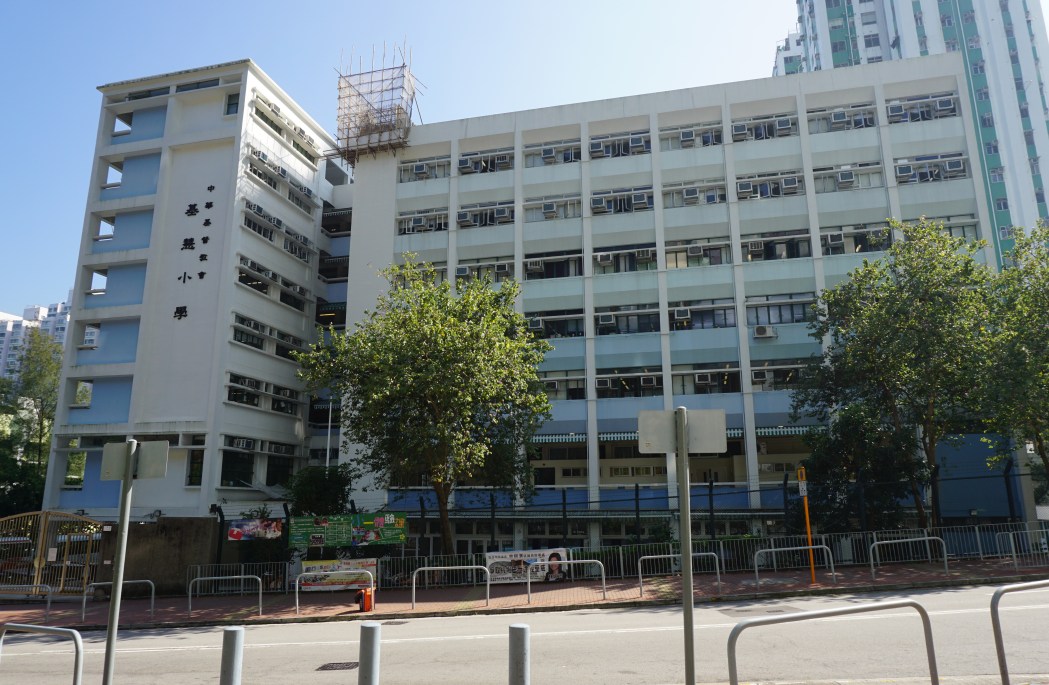
In both schools, students sang the national anthem loudly during a flag-raising ceremony, the reports added.
“As observed, the flag-raising team expertly raised the flag, the students were solemn during the ceremony and loudly sang the anthem, showing their respect to the national flag and the anthem,” the report for the TWGHs Kap Yan Directors’ College in Wong Tai Sin read.
TWGHs Kwan Fong Kai Chi School, a school catering to special needs students, provided “all-rounded” learning activities with patriotic elements such as watching heroic Chinese films during lunch so they could “appreciate the virtues of our ancestors,” according to the report.
Patriotic education focus
The summary reports are the second batch to be released by the Education Bureau under the accountability framework. Earlier, four schools were told to bolster their national security education curricula, including two institutions for special needs students.
Caritas Resurrection School, a special needs school for children with moderate intellectual disabilities, was said to be “lagging behind” in implementing national security education.
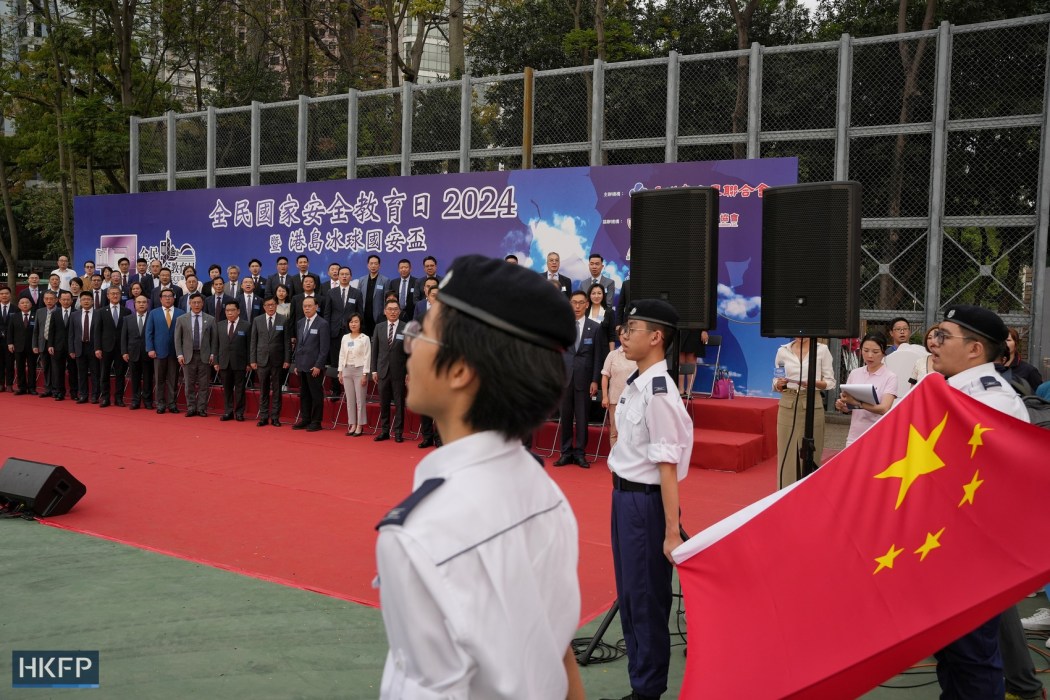
Po Leung Kuk Law’s Foundation School, a school for children with severe intellectual disabilities in Yuen Long, only had a small number of subjects linked to national security, the bureau said.
Since Beijing passed a national security law in Hong Kong in June 2020 following months of protests, the Education Bureau has placed emphasis on patriotic education from in kindergartens to universities. In January, Beijing’s patriotic education law, which also covers Hong Kong and Macau, came into effect, further emphasising the topic.
In May, the Education Bureau called on parents to cooperate with schools to help heighten their children’s sense of national identity. The bureau recommended that parents encourage their children to join activities at schools related to the Basic Law and national security, such as talks and mainland China exchange programmes.
Authorities have also called on schools to remove books that endanger national security, as well as added a “sense of national identity” to requirements for aspiring school principals.
Support HKFP | Policies & Ethics | Error/typo? | Contact Us | Newsletter | Transparency & Annual Report | Apps
Help safeguard press freedom & keep HKFP free for all readers by supporting our team

LATEST FROM HKFP
HKFP has an impartial stance, transparent funding, and balanced coverage guided by an Ethics Code and Corrections Policy.
Support press freedom & help us surpass 1,000 monthly Patrons: 100% independent, governed by an ethics code & not-for-profit.




